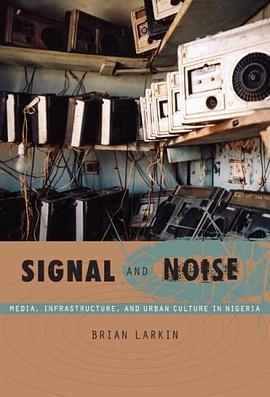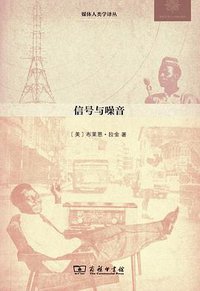Signal and Noise
豆瓣
Media, Infrastructure, and Urban Culture in Nigeria
Brian Larkin
简介
Mainstream media and film theory are based on the ways that media technologies operate in Europe and the United States. In this groundbreaking work, Brian Larkin provides a history and ethnography of media in Nigeria, asking what media theory looks like when Nigeria rather than a European nation or the United States is taken as the starting point. Concentrating on the Muslim city of Kano in the north of Nigeria, Larkin charts how the material qualities of technologies and the cultural ambitions they represent feed into the everyday lived world of urban Nigeria. Media technologies were introduced to Nigeria by colonial regimes as part of an attempt to shape political subjects and create modern, urban Africans. Larkin analyzes the introduction of media with electric plants and railroads as part of the wider infrastructural project of colonial and postcolonial urbanism.Focusing on radio networks, mobile cinema units, and the building of cinema theaters, he argues that what media come to be in Kano is the outcome of technology's encounter with the social formations of northern Nigeria and with norms shaped by colonialism, postcolonial nationalism, and Islam. Examining how media technologies produce the modes of leisure and cultural forms of urban Africa, Larkin analyzes contemporary cinema-going practices within an Islamic society, the circulation of Hindi films to Muslim Nigeria, and the dynamic emergence of Nigerian video films. He emphasizes the diverse, unexpected media forms and practices that thrive in urban Africa. "Signal and Noise" brings anthropology and media together in an original analysis of the place of media in urban life.
contents
Acknowledgments
Introduction
1. Infrastructure, the Colonial Sublime, and Indirect Rule
2. Unstable Objects: The Making of Radio in Nigeria
3. Majigi, Colonial Film, State Publicity, and the Political Form of Cinema
4. Colonialism and the Built Space of Cinema
5. Immaterial Urbanism and the Cinematic Event
6. Extravagant Aesthetics: Instability and the Excessive World of Nigerian Film
7. Degraded Images, Distorted Sounds: Nigerian Video and the Infrastructure of Piracy
Conclusion
Notes
Bibliography
Index
